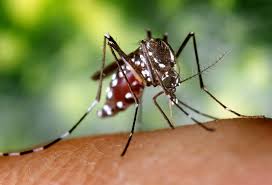Malaria Disease and Health Advice for Foreign Travel to Africa: Precautions to Take in Prone Areas
Africa offers a tropical paradise for many tourists from western countries. One can barely resist the pristine beaches, cool rainforests with the magnificent sunsets and wildlife shown in travel brochures. When making travel plans to vacation in Africa especially Sub-Saharan Africa, it is important to take travel shots and preventative measures to protect against diseases like malaria.
Malaria is a leading cause of death in Africa. For people traveling from countries where there is no malaria, the risk is even greater as the body has no experience with the malaria causing parasite. International health insurance should be taken in case of any hospitalization or doctors services that may arise at the destination.

Before You Travel to Africa
Before leaving for the vacation, make sure to schedule an appointment with a travel clinic to get malaria travel advice and a prescription for antimalarial medication. Allow for adequate time when making travel plans to fit in this visit. It is recommended to go at least four weeks prior so as to start the first dose of malaria medication before departing for malaria-prone countries. The starting date of the antimalarial drugs will depend on the type prescribed. Some require taking the first dose up to two weeks before travel.
Make sure to carry DEET insect repellant for personal use. According to the Traveler’s Health – Yellow Book on the CDC website, the “CDC recommends the use of products containing active ingredients that have been registered by the U.S. Environmental Protection Agency (EPA) for use as repellents applied to skin and clothing.”
Travel Precautions in Africa
Once at the travel destination, ensure your choice of accommodation has mosquito nets that adequately cover the bed. The mosquito nets should be pretreated and in perfect condition.
If traveling to the more rural areas, it is advisable to purchase a pretreated net to use in case there is none at the accommodation. These can be purchased at most supermarkets at the local destination.
Try to limit outdoor activities after dusk to minimize the risk of getting bitten by mosquitoes. If outdoor activities are planned for in the evening, be sure to apply DEET insect repellent to exposed parts of the body. Wearing long sleeved tops and pants that reach the ankles is advisable if the weather permits.
Remember to keep up with the malaria prevention medication while on the vacation. The dosage will normally be prescribed to last for some weeks after return to the home country. According to the CDC’s Division of Parasitic Diseases, the antimalarial medication should be taken on schedule. “Missing or delaying doses may increase their risk of getting this disease.”
Malaria Symptoms and Treatment
Medical attention must be sought immediately if flu-like symptoms, diarrhea and fever are experienced. Other symptoms include muscle aches and headaches. A test will be performed and treatment started if malaria is confirmed.


